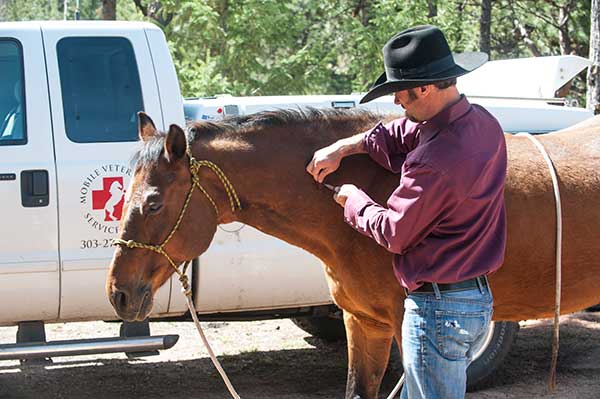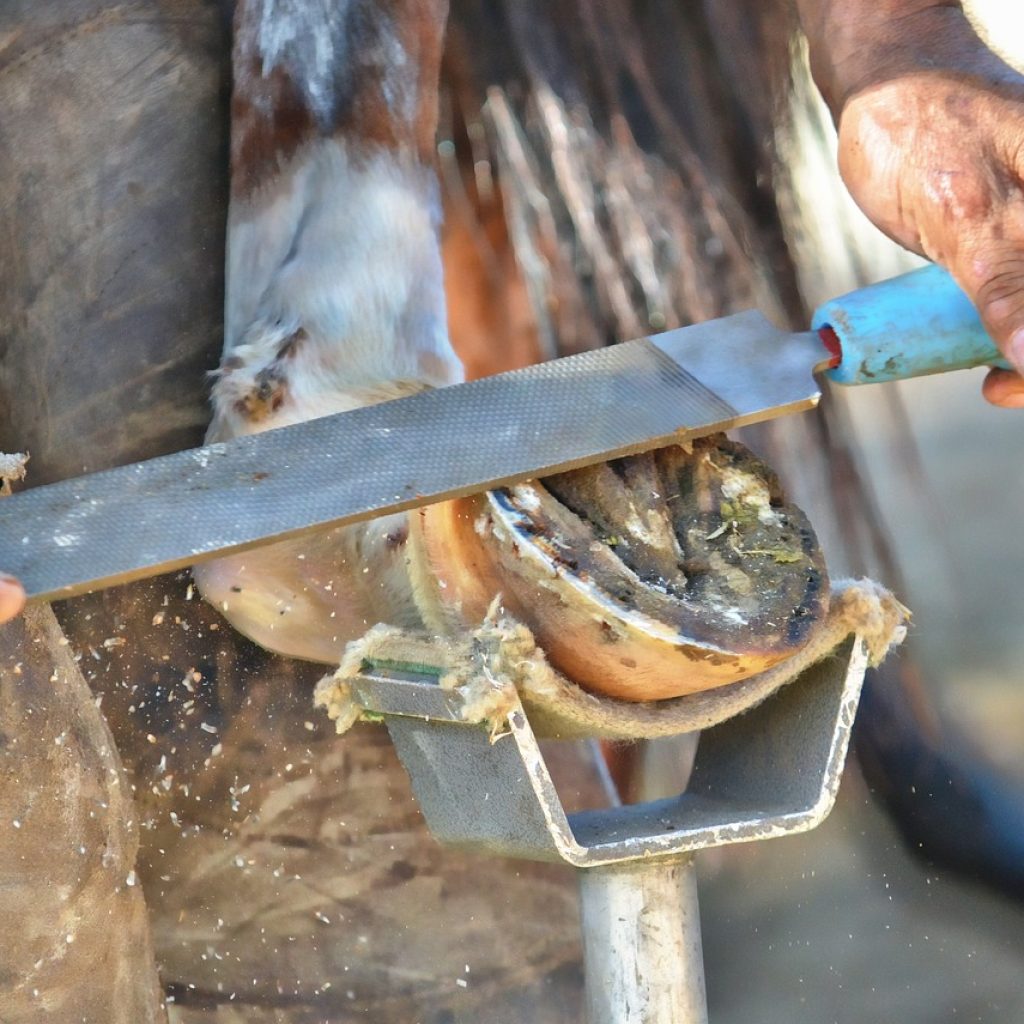
As a horse owner, have you taken responsibility for your horse’s ability to handle potentially stressful situations? Are you prepared for the inevitable emergency situation? Taking the time to evaluate you and your horse’s ability to handle these situations BEFORE they happen will help ensure better outcomes. Here is a list of basic life skills important for all horses, regardless of age or location!

- Basic handling, including catching, haltering , and leading your horse. You should be able to touch your horse’s body and legs and pick up all 4 feet. If you cannot catch your horse, how can your veterinarian examine him? If you never catch your horse, waiting until he is sick or wounded will not make the situation easier. If you cannot touch your horse’s legs or pick his feet, it is unfair to expect he will allow the farrier to do so safely. Remember that consistent handling is key to success and progress!
- Temperature- If you own a horse, you need to own a thermometer, know how to use it, and be able to safely take your horse’s temperature.
- Oral medications- There is no reason why your horse cannot learn to have his mouth touched and have oral medications administered (including dewormer!) It is highly likely that at some point, you will need to give your horse an oral medication. Your horse may not sip it eagerly from a syringe, but he needs to allow you (and your veterinarian) to administer an oral medication safely- without rearing, striking, running backwards, etc. If this is a weak skill for your horse, check out some of the resource links below for how to help your horse.
- Trailer loading- Even if your horse is retired at home, in the event of a fire or other life-threatening emergency, your horse will need to load on a trailer. This is a skill that comes with practice! Waiting until a stressful event forces this scenario is a good way to ensure that your horse does not load safely or in a reasonable amount of time. If you do not own a trailer, it is your responsibility to plan ahead- does a friend or neighbor have a trailer to help you? If your horse does not load reliably, consult with a reputable trainer to help him learn and practice.
- Safe behavior for veterinary exams- Your horse might be nervous about your veterinarian administering vaccinations or medications- that’s ok! Let your veterinarian know in advance and be aware of what works best for your horse in these situations- some treats, a twitch, etc- your veterinarian will appreciate the heads up and your respect for their safety. It is not acceptable for your horse to behave dangerously or violently, and such behavior will eventually mean less than ideal outcomes for your horse following illness or injury. Being a rescue is NOT an excuse for dangerous behavior. Consistent practice and de-sensitization training is a worthy investment for you and your horse!

Here are some great resource videos with training and desensitization tips:
- Dr. Gemma Pearson, demonstration of techniques to make veterinary care less stressful for horses and safer for those involved. This is a long video but worth a watch https://www.youtube.com/watch?app=desktop&v=JI3xjvPPzzI
- The British Equine Veterinary Association has a helpful Youtube channel “Don’t Break Your Vet” with short videos of densensitization training techniques to help horses stay safe and relaxed for injections, clipping, deworming, exams, and other veterinary procedures.







No comment yet, add your voice below!